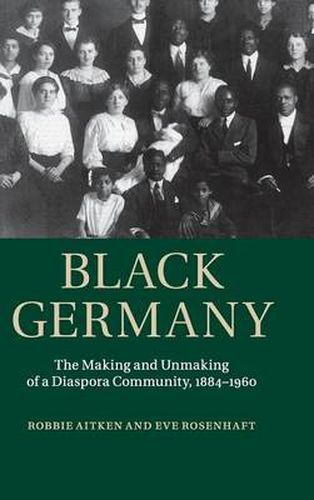Readings Newsletter
Become a Readings Member to make your shopping experience even easier.
Sign in or sign up for free!
You’re not far away from qualifying for FREE standard shipping within Australia
You’ve qualified for FREE standard shipping within Australia
The cart is loading…






This groundbreaking history traces the development of Germany’s black community, from its origins in colonial Africa to its decimation by the Nazis during World War II. Robbie Aitken and Eve Rosenhaft follow the careers of Africans arriving from the colonies, examining why and where they settled, their working lives and their political activities, and giving unprecedented attention to gender, sexuality and the challenges of ‘mixed marriage’. Addressing the networks through which individuals constituted community, Aitken and Rosenhaft explore the ways in which these relationships spread beyond ties of kinship and birthplace to constitute communities as ‘black’. The study also follows a number of its protagonists to France and back to Africa, providing new insights into the roots of Francophone black consciousness and postcolonial memory. Including an in-depth account of the impact of Nazism and its aftermath, this book offers a fresh critical perspective on narratives of ‘race’ in German history.
$9.00 standard shipping within Australia
FREE standard shipping within Australia for orders over $100.00
Express & International shipping calculated at checkout
This groundbreaking history traces the development of Germany’s black community, from its origins in colonial Africa to its decimation by the Nazis during World War II. Robbie Aitken and Eve Rosenhaft follow the careers of Africans arriving from the colonies, examining why and where they settled, their working lives and their political activities, and giving unprecedented attention to gender, sexuality and the challenges of ‘mixed marriage’. Addressing the networks through which individuals constituted community, Aitken and Rosenhaft explore the ways in which these relationships spread beyond ties of kinship and birthplace to constitute communities as ‘black’. The study also follows a number of its protagonists to France and back to Africa, providing new insights into the roots of Francophone black consciousness and postcolonial memory. Including an in-depth account of the impact of Nazism and its aftermath, this book offers a fresh critical perspective on narratives of ‘race’ in German history.